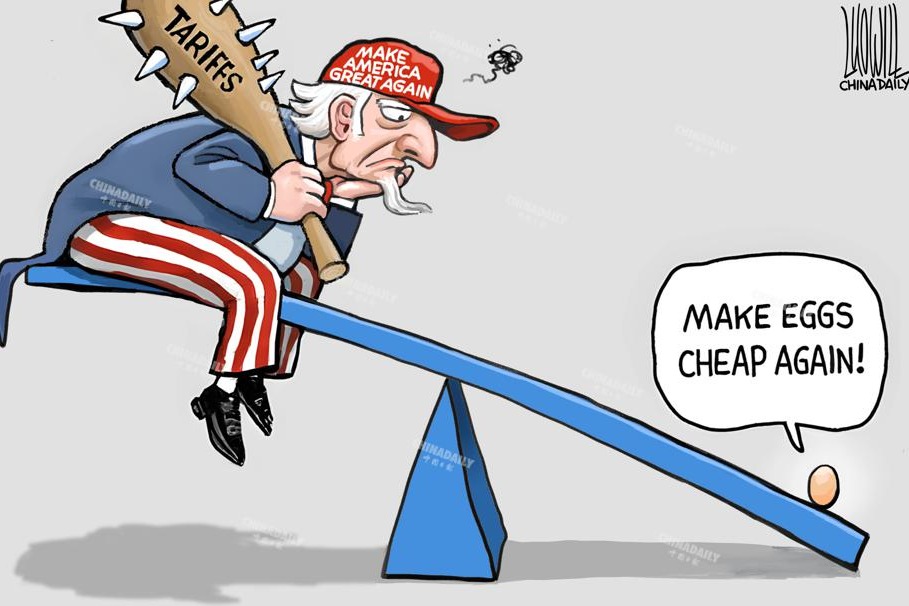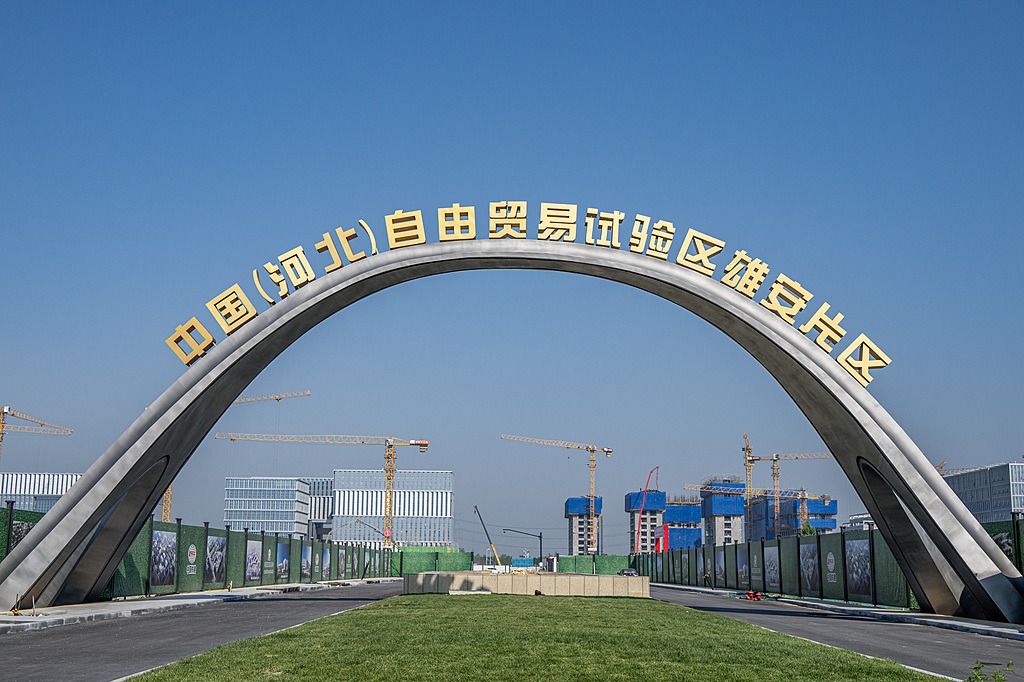Editorial flash: Global trade threatened by US' tariff tantrum


The US' imposing of so-called reciprocal tariffs on its trading partners is like an undersea earthquake that will create a tsunami of turbulence and trouble for the global economy.
The US administration has justified the move, citing a perceived loss of ground in international trade and the need for "reciprocity". But this has been met with skepticism by most people except those in the US president's inner circle. By disregarding the balance of interests established through years of multilateral trade negotiations and overlooking its own substantial gains from international trade, the US is destabilizing the global trade framework in the vain hope of regaining lost preeminence.
The imposition of what the US president massages as "discounted tariffs" is based on subjective and unilateral assessments by those around him who support the idea of wielding the bullying bat of tariffs to get favorable trade outcomes for the US. But the tariffs not only violate international trade rules but also represent a form of coercion that harms the legitimate rights and interests of all parties subject to their extortionist pressure. The resounding opposition from numerous trading partners reflects the widespread discontent and concerns over the potential repercussions of such actions.
History serves as a stark reminder that escalating tariffs does not offer a sustainable solution to the challenges faced by the US. Instead, such measures not only jeopardize the interests of the US but also pose a threat to global economic development and the stability of production and supply chains. The specter of a trade war looms large, with no winners in sight and the surge of protectionism offering no viable path forward.
China has expressed its firm opposition to the tariffs and vowed to take resolute countermeasures. But in light of the escalating tensions in international trade relations caused by the US' trade aggression, it has also called on the US administration to remove the unilateral tariff measures and engage in constructive dialogue with trading partners as a crucial step toward de-escalating the situation. The need for dialogue, mutual understanding, and cooperation is imperative and paramount for navigating the complex landscape of international trade and fostering a climate of shared prosperity and stability for all nations. The US' zero-sum tariff moves stake out a fool's paradise.


































